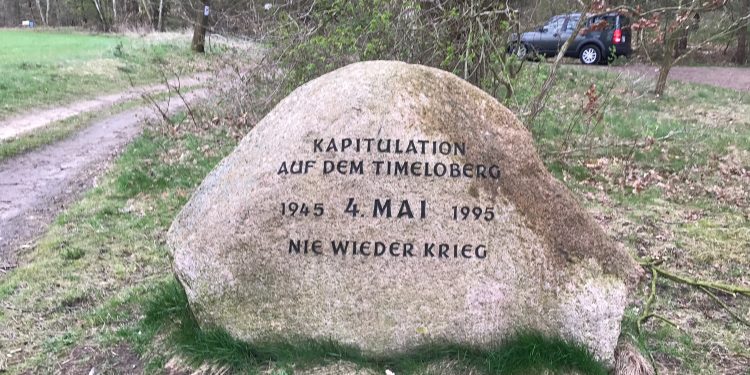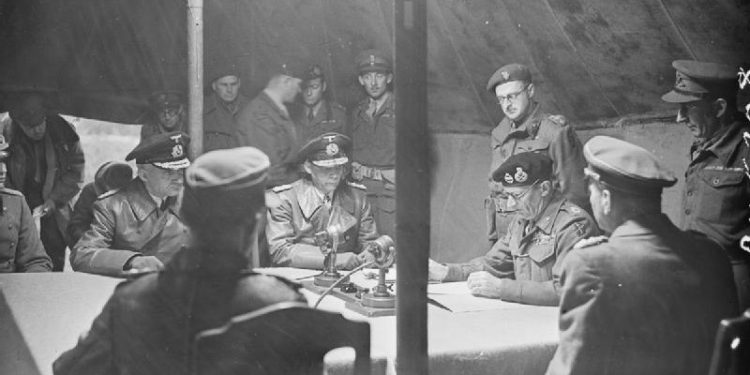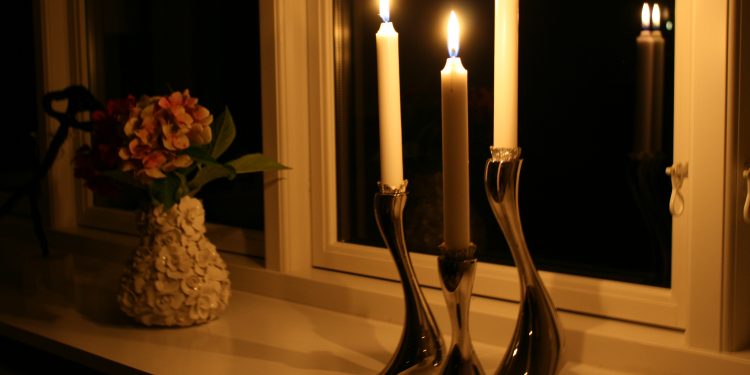Candles will grace the windows in Denmark on 4 May at dusk
2025 marks the 80th anniversary of the liberation of Denmark with the German capitulation in Northern Europe. If you go for a walk as dusk sets in on the evening of 4 May, you will see burning candles in many windows.
The article continues below.
By Bente D. Knudsen Pictures: Private and IWM BU 5207 (the picture of the surrender)
In Denmark, the 4 May commemorates the surrender of the German army in all of Northern Europe and Denmark subsequently was declared free.
On a personal note, my father of 92 remembers the day vividly as he had listened to the announcement on the Danish broadcast from London. His parents were out for dinner and, as the host had no phone, my father (of 12 at the time) had to run out and find them to give them the information even though it was past his bedtime.
The papers were signed was on 4 May 1945 in the midst of a dense forest outside of Luneburg in Northern Germany.
The place is not easy to find, and no local tourist guidebook indicates where it is. However, on its 50th anniversary in 1995, a memorial stone was placed here to commemorate the surrender.
In 1945, the documents were signed by Admiral von Friedeburg and Fieldmarshal Montgomery.
Danes got the message of the surrender via radio during the late afternoon and early evening (of 4 May) and to mark the end of the war, with its imposed curfew banning all light at night, they lit candles and placed them in their windows.
The candle lighting tradition on 4 May has been upheld since 1945 and is the the reason why candles are lit on 4 May, in 2025, they mark the 80 years since the 2nd World War officially ended in Denmark.
The article continues below.
The official celebration of Denmark’s liberation at the end of WW II is the 5 May.
On this day you will see the Danish flag flying from flagpoles and buses as it is an official flag flying day.
Support our magazine with a contribution of any size
We do not want to put up a pay-wall, so we need your support and if you find our content relevant and worthwhile, we would value any contribution, however big or small, as a token of your appreciation of our efforts.
How to support:
Transfer any contribution to our bank account at: Your Danish Life/ Danish Expat Media Aps
Danske Bank Account number: 3409 11405673
IBAN: DK68 3000 0011 4056 73
Message: Support
However, this does not mean that Danes do not believe in remembering and commemorating the end of the war.
In the same survey, 73 percent said they found it important to keep the tradition and 83 percent found it important to continue commemorating the 5 May, which is the official Danish liberation day.
Denmark was occupied by the Germans on the 9 April 1940 and of all Danes asked in the survey, 89 percent know that this is what that date stands for.
For those above the age of 50, 97 percent know the date, whereas “only” 73 percent of those below 35 can place it correctly.
In 2025, the candle lighting tradition will certainly be further revived due to the war in Europe.




